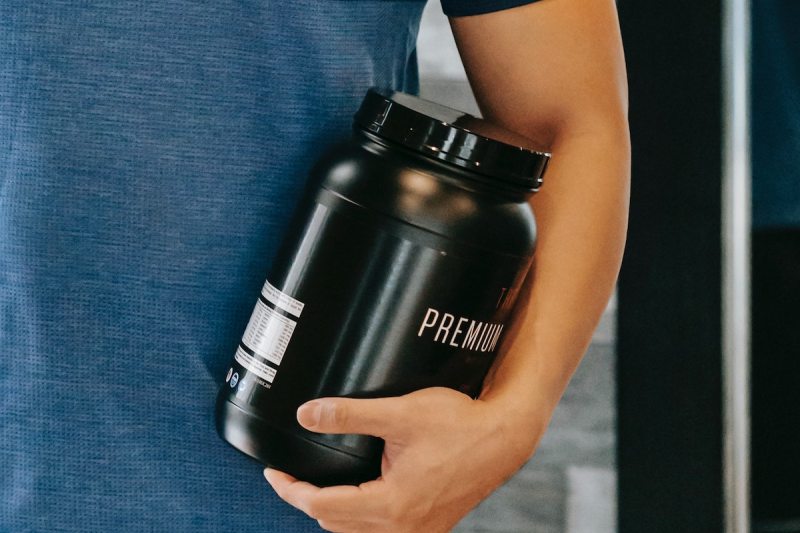
Gone are the days when the only question you got asked in the gym is what brand of whey protein are you taking? The world of sports supplements and athletic performance aids is becoming increasingly complex and vast. Walk the aisles of any supplement store, and you’ll quickly realize there are supplements for pre-, post-, and inter-workouts with innumerable options and iterations to keep track of.
Even your own gym, where you once would have only seen other guys drinking water or basic sports drinks during and after workouts, now is filled with sights of water bottles filled with all sorts of powdered mixes and enhanced fluids, tubs of protein powders, and electrolyte drinks, and even various bottles of capsules and pills. Some gyms even have dedicated “nutrition bars” where you can order pre- and post-workout smoothies, juices, and energizers. Clearly, the ever-present quest to get the most out of our bodies and maximize physical performance has been answered by supplement companies and fitness marketing businesses.
One said type of supplement to enter the athletic performance market over the last decade is pre-workouts and they are becoming more and more popular amongst the general gym population. As the name describes, pre-workout supplements are taken before a workout and are intended to boost athletic performance and output. Though they may not be as common as energy or electrolyte drinks and protein shakes, if you’ve seen other guys sipping a pre-workout drink or popping a few capsules before hitting the weights and have found yourself wondering if doing the same will improve your own fitness, keep reading to learn the basics of pre-workouts and whether pre-workout supplements actually work.
What are pre-workout supplements?

Have you ever had a big workout planned on your calendar, but by the time you get done at the office and are heading to the gym, you feel so tired and depleted that you can’t imagine running a few miles, let alone dominating your HIIT workout? This is where pre-workout supplements come in. A pre-workout is a supplement with a formulation designed to increase your energy and focus, prevent glycogen depletion, and boost athletic performance. It may be a powder, a pre-made liquid beverage, capsules or pills, or some form of gummies or chewing gum.
The term pre-workout is sort of an umbrella term, encompassing any supplement taken before exercise, so the specific ingredients and formulations vary. That said, pre-workouts often contain caffeine, beta-alanine, creatine, B vitamins, and/or branched-chain amino acids (BCAAs). The ingredients are meant to provide a quick boost of energy.
For example, caffeine is a stimulant so it can increase alertness and energy. Creatine is used as a substrate in the most rapid energy-generating pathway in the body, which is used by your muscles during powerful, forceful contractions. B vitamins, especially vitamin B12, also play a key role in energy production and metabolism, while branched-chain amino acids fuel muscles and have been shown to support muscle protein synthesis. Some pre-workouts contain green tea extracts to mobilize fat, and some contain electrolytes as well.
Do pre-workout supplements work?

Because the category of pre-workout supplements is broad, it’s not possible to assert whether every single product works. Certain products are naturally going to be more effective than others, depending on the ingredients and formulation used. Caffeine, for example, has been routinely shown to provide a variety of performance-enhancing benefits. There is also a decent body of evidence associating creatine supplements with increases in muscle size and strength in response to weightlifting.
Some pre-workouts also contain compounds designed to enhance circulation and blood flow by serving as nitric oxide precursors. For example, L-arginine and L-citrulline are amino acids said to support the production of nitric oxide, which dilates blood vessels and enhances blood flow. The rationale for including these types of ingredients is that increased circulation delivers more nutrients and oxygen to working muscles, which can increase the availability of usable energy and warm tissues to prevent injury.
When to take pre-workout supplements

To maximize the benefits of a pre-workout supplement, most fitness trainers recommend taking the pre-workout 30-60 minutes before working out to give your body a chance to digest and metabolize the ingredients and circulate the products into your bloodstream.

Are pre-workout supplements safe?
It’s always best practice to consult your physician before taking a new supplement, particularly if you have underlying health conditions or take medications. Pre-workout supplements tend to be safe for most individuals, but if you are sensitive to caffeine or have high blood pressure, they may not be advisable. Creatine can also increase blood pressure and lead to water retention.
When choosing a pre-workout supplement, it’s critical to read the ingredients label in its entirety. Try to avoid supplements with artificial sweeteners and chemicals, both of which can cause significant digestive distress. Ensure you’re not allergic or sensitive to any of the ingredients, and consider starting with a fraction of the recommended dose to assess your tolerance.
Are pre-workout supplements necessary?

Pre-workout supplements aren’t necessary for everyone. These supplements often contain ingredients like caffeine, creatine, and beta-alanine that may enhance energy, focus, and performance during workouts. Research doesn’t conclusively show they significantly improve performance for everyone, and a healthy diet and good sleep can provide similar benefits. A drawback to some pre-workout supplements is that they have high caffeine content, which can cause jitters, anxiety, and insomnia, especially for those sensitive to caffeine.
Pre-workout supplements can benefit athletes and serious lifters looking for that extra edge in performance. People who consistently struggle with low energy before workouts despite a good diet and sleep could also benefit from these supplements.
While pre-workout supplements can definitely give you an edge in the gym, helping you focus and maximize the effort you put in during the session, in the end, nothing can replace a well-balanced diet. Then, once you have the nutrition in check, investing in a pre-workout can definitely be a great little weapon to add to your supplement arsenal.
Editors' Recommendations
- 5 effective resistance band back exercises to add to your workout
- Why strength training should be an essential part of your gym routine
- C4 pre-workout powders have new formulas — why they’re celeb trainer Ron ‘Boss’ Everline’s ‘go-to’
- 7 delicious, portable, high-protein snacks that will support your weight loss goals
- Is olive oil good for you? All about this healthy fat (and how to use it in your kitchen)





